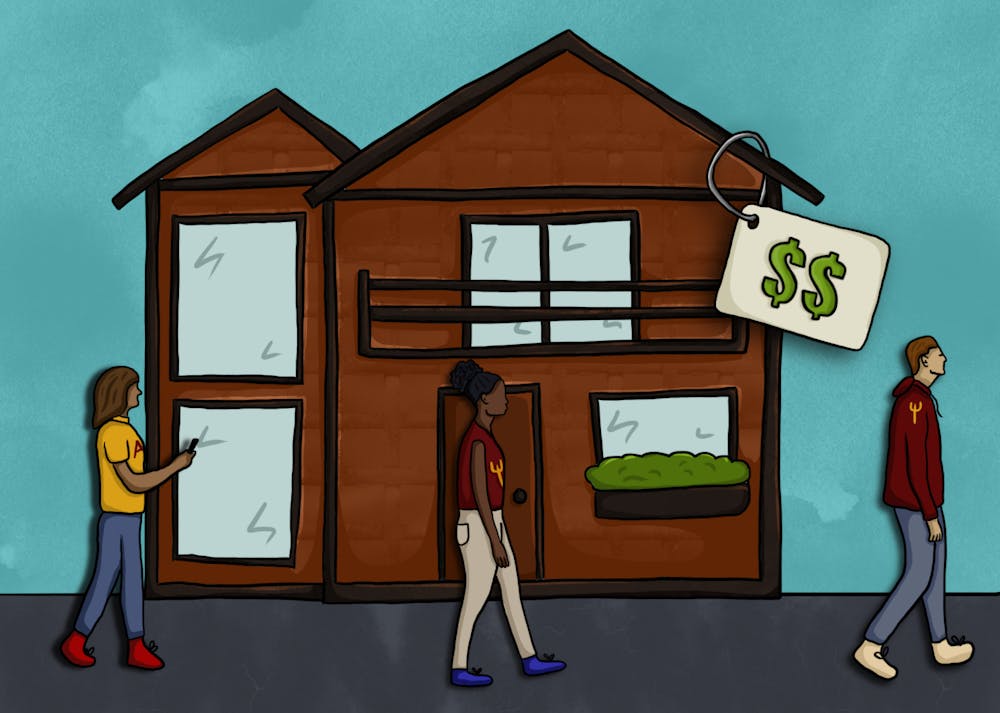Tempe City Council has proposed an amendment to the city's anti-discrimination ordinance regarding the use of a housing choice voucher.
Tempe's updated plan would change the city’s anti-discrimination ordinance by banning landlords from discriminating against using Housing Choice Vouchers. There is currently no protection for residents on an HCV from being denied housing.
Housing choice vouchers (HCVs) are part of a program that assists low-income families and people to afford decent, safe and sanitary housing in the private market, according to the Arizona Department of Housing (ADOH). HCVs are funded and monitored by the federal government through the Section 8 Housing Choice Voucher Program. For Tempe, HCVs are managed by the Tempe Human Services Department's Housing Services. People using HCVs pay at least 30% of their monthly income toward their rent, and the program will pay the remaining balance.
People whose household income is less than 50% of the area's median income are eligible for an HCV.
The potential update is part of a larger project chaired by Tempe councilmembers Berdetta Hodge and Randy Keating in their Workforce Readiness and Livable Communities Council (WRLC). The WRLC heard from numerous residents about what the change to the ordinance would mean for people facing financial insecurity.
"Before, it was a system where people would choose to participate, and now we're saying that you're no longer allowed to discriminate against people using vouchers," Keating said. "We hope that not only opens up more avenues for housing but then helps to de-stigmatize the use of vouchers as well."
Tempe’s population is expected to continue rising, with fewer housing resources to support the exploding population. Keating said Tempe has a housing shortage, and the council won't deny approval for additional housing construction.
"It's a supply and demand issue," Keating said.
According to Zillow, the average monthly rent in Tempe is around $1900, so residents are left with fewer options as the population grows. Stacey Gandy, a professor at ASU’s School of Social Work, said by helping any community, everyone can be uplifted in the economy.
"There are benefits that come to all of us when we help these groups that we make the 'other,'" Gandy said. "The housing first model is so important … there are basics that everyone deserves."
Odalis Lopez Villegas, a sophomore studying health care administration and policy and a foster care awareness housing advocate, said the proposed update can potentially change someone’s life, and this support gives people a "fighting chance."
"It's important for cities to help residents with housing security in order to ensure future prevalence of good outcomes," Villegas said. "When your basic needs are absent, a lot more leaves the equation. (Housing) is critical to move forward."
Edited by Shane Brennan, Walker Smith and Caera Learmonth.
Reach the reporter at alysa.horton@gmail.com and follow @alysa_horton on X.
Like The State Press on Facebook and follow @statepress on X.
Alysa is a senior studying journalism and mass communication with a minor in political science. This is her fifth semester with The State Press. She has also worked at The Arizona Republic.




